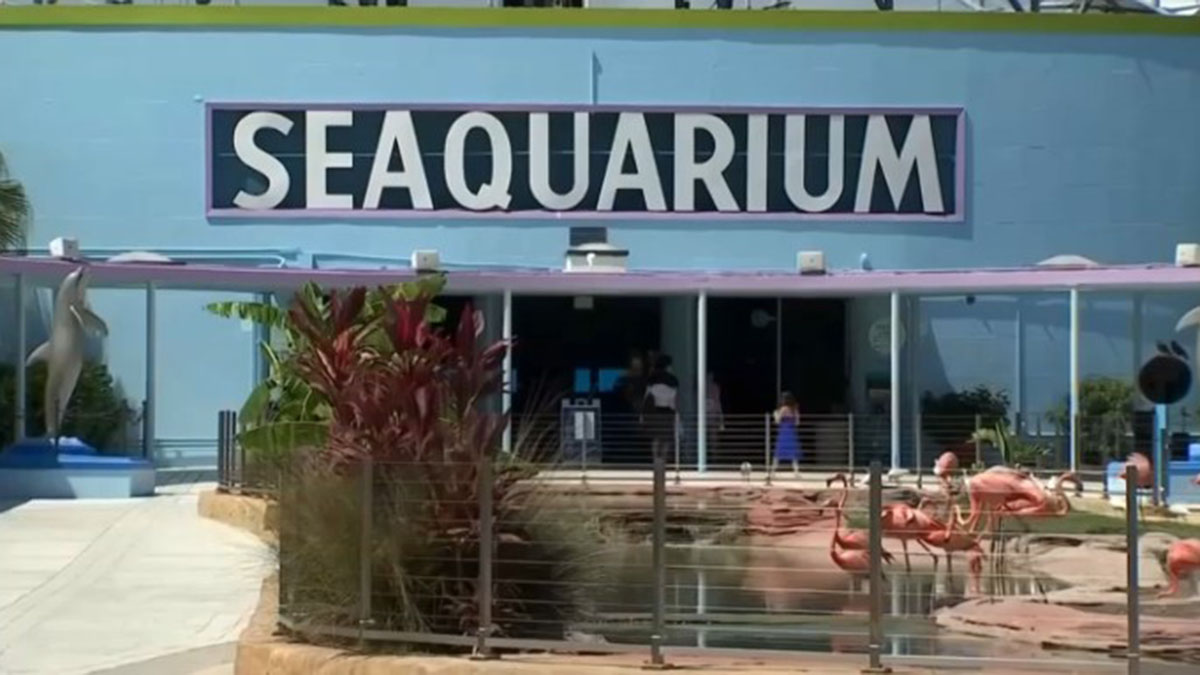Miami-Dade County is ending the Miami Seaquarium's lease and has ordered the company to leave the property next month following months of allegations of deteriorating conditions at the park and animal welfare issues.
The office of Miami-Dade Mayor Daniella Levine Cava sent a "Notice of Termination of Lease" letter Thursday to Eduardo Albor, the president of park operator The Dolphin Company.
The letter said the county was terminating the lease as a result of "numerous and significant violations and defaults."
MIAMI SEAQUARIUM LATEST
The Hurricane season is on. Our meteorologists are ready. Sign up for the NBC 6 Weather newsletter to get the latest forecast in your inbox.
"Lessee's long and troubling history of violations constitute repeated, continuous and longstanding violations of Lessee's contractual obligations to keep the Property in a good state of repair, maintain animals in accordance with applicable law, and comply with all laws," the letter read.
The owners were told to vacate and surrender the property by April 21.
At a Thursday afternoon news conference, Levine Cava called the move "inevitable" and said the park repeatedly violated the terms of their lease.
"The Seaquarium has a long and troubling history of repeated, continuous violations of their contractual obligations to keep the property in a good state of repair, maintain animal welfare in accordance with applicable laws and to comply with the lease," Levine Cava said. "Terminating the lease is the best path forward for the safety of the animals as well as the safety of residents and visitors."
Levine Cava said the Seaquarium has until March 11 to accept the lease termination. Albor said he hasn't had an opportunity to speak to the mayor directly and plans to fight the termination.
"I will just let our lawyers defend our rights," Albor said.
The move could bring and end to the years-long battle by animal activists to close the park and comes after multiple recent inspection reports detailing a host of issues at the facility.
One report prepared in January by the United States Department of Agriculture's Animal and Plant Health Inspection Service details the conditions found at the Seaquarium during a routine inspection on Oct. 16.
The report noted that a dolphin named "Ripley" was found with a two-inch nail, mangrove pods, and small pieces of shell in his throat.
Another dolphin, "Bimini," was found with a broken bolt in her mouth.
Weeks before the inspection, it had been discovered that an adult female California sea lion named "Sushi" had been holding her right eye closed and rubbing both eyes due to needing cataract surgery, the report said.
The sea lion started refusing food due to eye pain and at the time of the inspection the cataract surgery had still not been scheduled, the report said.
Also found at the time of the inspection were a large number of ants in the facility’s vet clinic, on and inside the cabinet housing vitamins and supplements that can be used for the marine mammals, the report said.
Other issues found were black growth and bubbling and peeling paint in a penguin enclosure, a "strong noxious odor" in an area housing parrots, and "stagnant, murky water with green algae growing in it" in a flamingo enclosure, the report said.
Another USDA report from November found dolphin pools in disrepair and high counts of bacteria in the water where marine mammals are kept, among other issues.
In January, it was learned that the county was seeking to terminate its lease with the Seaquarium, citing the USDA reports.
Levine Cava cited the reports as one of the main reasons for the lease termination, saying it's not a safe environment for the Seaquarium's animals.
"I remain concerned about the poor quality of animal care that has been repeatedly documented by the USDA," she said Thursday. "The current state of the Miami Seaquarium is unsustainable and unsafe."
Last month, two PETA protests were held in Miami calling for the Seaquarium’s lease to be terminated.
In a Jan. 21 letter to Albor, Levine Cava expressed "profound frustration" over the Seaquarium's "multiple and repeated" instances of animal welfare violations found by the USDA.
The Seaquarium later released a statement that said its animal care staff has been collaborating with the USDA to address concerns about the care of four complex animal cases.
"Miami Seaquarium is in compliance with federal Animal Welfare Act regulations. It's important to clarify that, there was no confiscation, and MSQ’s professional staff continues to care for its animals with the same passion, knowledge and dedication they do every day," the release stated. "Despite maintaining open and direct communication with Miami Dade County, MSQ was never asked by our landlord to confirm such information."
Miami Seaquarium also noted that constant improvements have been made to its animal care programs since The Dolphin Company assumed the operations.
"The USDA complimented the steps Miami Seaquarium and its dedicated team of animal professionals has taken in that regard," the release stated.
“If this is something wrong that happened nearly two years ago, why is USDA still allowing us to operate? Because we have corrected everything," Albor said.
Last month, it was announced the Seaquarium's head veterinarian had resigned.
The Seaquarium suffered two major animal losses in 2023, including the death of beloved killer whale Lolita in August and the death of dolphin Sundance in December.
The Dolphin Company took over the operation of the park in 2022 but the Seaquarium has been on the government-owned land for almost 70 years.
If the Seaquarium doesn't agree to leave it could lead to a legal eviction process.



